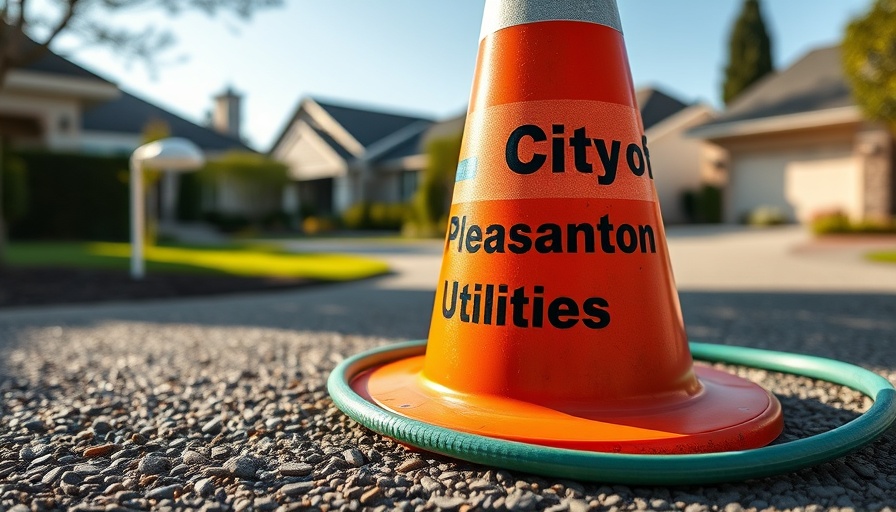
Hose Hydration: Temporary Solutions to a Permanent Problem
In the unincorporated neighborhood of Remen Tract, Pleasanton residents are enduring some deeply unsettling water issues. Residents have relied on makeshift hose connections for their daily water needs after a significant water line break disrupted their supply. As of early May 2025,
the six affected homes have been utilizing a connection from one home to another for everything from showering to cleaning dishes, revealing not just an immediate logistical challenge but broader implications for municipal responsibility.
The City’s Response: A Limited Solution
The city of Pleasanton initially responded to the situation by installing a temporary supply line from a fire hydrant after the original water line failed on August 13, 2024. However, after months of reliance on this temporary fix, the city cut off the hydrant, leaving residents scrambling. Rick Hempy, a resident directly affected by the crisis, expressed frustration, sensing a different treatment than what he believes city residents would receive.
City spokeswoman Heather Tiernan explained the decision was made to protect overall water quality, noting that “fire hoses are not designed for continuous use as a permanent water line.” The private nature of the Remen Tract water infrastructure means that public funds cannot be allocated for repairs. She went on to offer free engineering services to help the homeowners with a potential solution.
Community Spirit Amid Crisis
Despite these challenges, the residents of Remen Tract are demonstrating resilience and creativity, working together to share resources. Hempy mentioned how neighbors are attempting to cover costs through a cooperative arrangement for the water supplied through hoses, reflecting a strong community bond formed in response to adversity.
Another resident, Rob Schurhoff, described the situation as “annoying,” emphasizing the day-to-day difficulties imposed by their current predicament. Such connections—both literally and socially—are what keep these households operational, yet they underscore the deeper issues of infrastructure and local governance.
Long-term Solutions: Finding Clean Water
The challenges faced in Remen Tract arrive as Pleasanton embarks on its own quest for cleaner water sources due to contamination concerns at existing wells. The city’s struggle with emerging contaminants like PFAS highlights an urgent need for broader discussions about public health and municipal services.
In searching for new well sites, Pleasanton is not only addressing immediate infrastructure concerns but also long-range health implications for its residents. The reliance on temporary measures like hoses underscores a growing urgency to invest in permanent solutions that ensure access to clean water for all citizens.
The Bigger Picture: Infrastructure Inequality
This local water crisis can serve as a broader reflection on infrastructure inequality in communities. Unincorporated areas often face systemic disadvantages when it comes to municipal services, raising questions about equity in public service deliverance.
The juxtaposition between how city and unincorporated residents are treated highlights glaring disparities that need addressing, especially in essential services like water. Will this situation eventuate in meaningful change or will it remain a footnote in the local history of neglect? Only time will tell.
Call to Action: Demand Accountability and Improvement
As residents continue to live day by day without reliable water access, it's crucial to engage with your local government. Holding them accountable for necessary infrastructure improvements not only benefits the people of Remen Tract but can pave the way for equitable resource allocation for all communities.
Communities should unite and raise their voices in advocating for better water infrastructure, demanding open lines of communication with city officials, and pushing for immediate solutions that ensure health, safety, and dignity for every resident.
 Add Row
Add Row  Add
Add 




 Add Row
Add Row  Add
Add 

Write A Comment